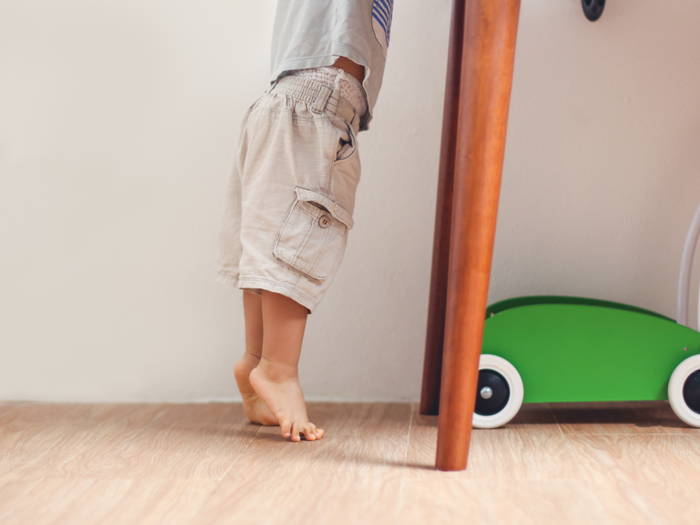- Home
- slideshows
- miscellaneous
- A Chinese mother raising her son in the US explains the differences between American and Chinese parenting
A Chinese mother raising her son in the US explains the differences between American and Chinese parenting
A Chinese mother raising her son in the US explains the differences between American and Chinese parenting

A Chinese mother raising her son in the US explains the differences between American and Chinese parenting

One of my first insights into the different parenting strategies between American and Chinese cultures came at an unexpected milestone in my son's life: potty training.
I started potty training my son when he was 10 months old. In China, potty training is a parent-led job: The child is held over a potty, and a parent whistles or makes a "shh" sound. "Kids eventually associate the sounds with ‘need to go,'" my mother claimed. "It's quick to learn. You were potty trained just after one."
Well, it's safe to say that all of my child's daycare friends were happily in diapers at that age. "Follow your child's lead," many American parents said. Our pediatrician also assured me starting potty training after age three was absolutely normal for a boy.
This disparity was demonstrative of a larger trend in parenting culture. Americans try to respect children's individuality and natural signs of interest, while Chinese parents tend to coach as early as possible and push kids to get on with it.
A Chinese mother raising her son in the US explains the differences between American and Chinese parenting

"Parents can't always tell kids what to do, right?" my son asked recently asked me. We were discussing our favorite short films after returning from the New York International Children's Film Festival.
"I can now, but who knows in 10 years?" I said to myself.
Confucian culture emphasizes one's importance to the family, society, and other people, so Chinese parents often project their hopes and decisions onto the next generation. Almost every child growing up in a Chinese family heard their parents say, "I do it all for you!"
Recently I came across a tragic story of an immigrant family that puts a spotlight on this traditional Chinese parent-child relationship.
Paul Li told his son Calvin that he would never be a professional football player because he was Chinese, and asked him to focus on his studies instead. Calvin died in a car crash just before he was about to start college.
"Even though I know maybe in reality he would not be a football player. But it was just the way I shattered his dream when he was small ... and I know for sure, there are other Chinese parents who are doing the same to their children right now. And I don't want that to happen," Li said.
A Chinese mother raising her son in the US explains the differences between American and Chinese parenting

There is one way American parents often project their expectations onto their children from a young age: playdates.
Both parents and kids lead hectic lives nowadays, so I am all for pre-arranged play. However, I am not comfortable with the idea of arranged friendships for kids. But it's certainly eye-opening to see how enthusiastic American parents are about helping kids form friendships, hone social skills, and expand their own social circles through kids' play.
If I only reach out to the families at my child's request, am I robbing him of valuable opportunities to interact with his peers, develop personal relationships, and tackle conflicts outside of the school environment?
Experts have found that social competence can be nurtured, and childhood friendship has many benefits. So I am considering coaching my son more in terms of his social and friendship skills.
A Chinese mother raising her son in the US explains the differences between American and Chinese parenting

As my child faces educational choices, different racial attitudes, puberty, and more in the years to come, my cultural values and beliefs will be challenged even more, and my parenting strategies altered.
Thankfully, my husband, a true British gentleman, never challenges my parenting in front of our child. Every day I remind myself to stick with it, and when my son whispers to me every night, "Mommy, you're the best," I know that I'm doing parenthood right.
Popular Right Now
Popular Keywords
Advertisement